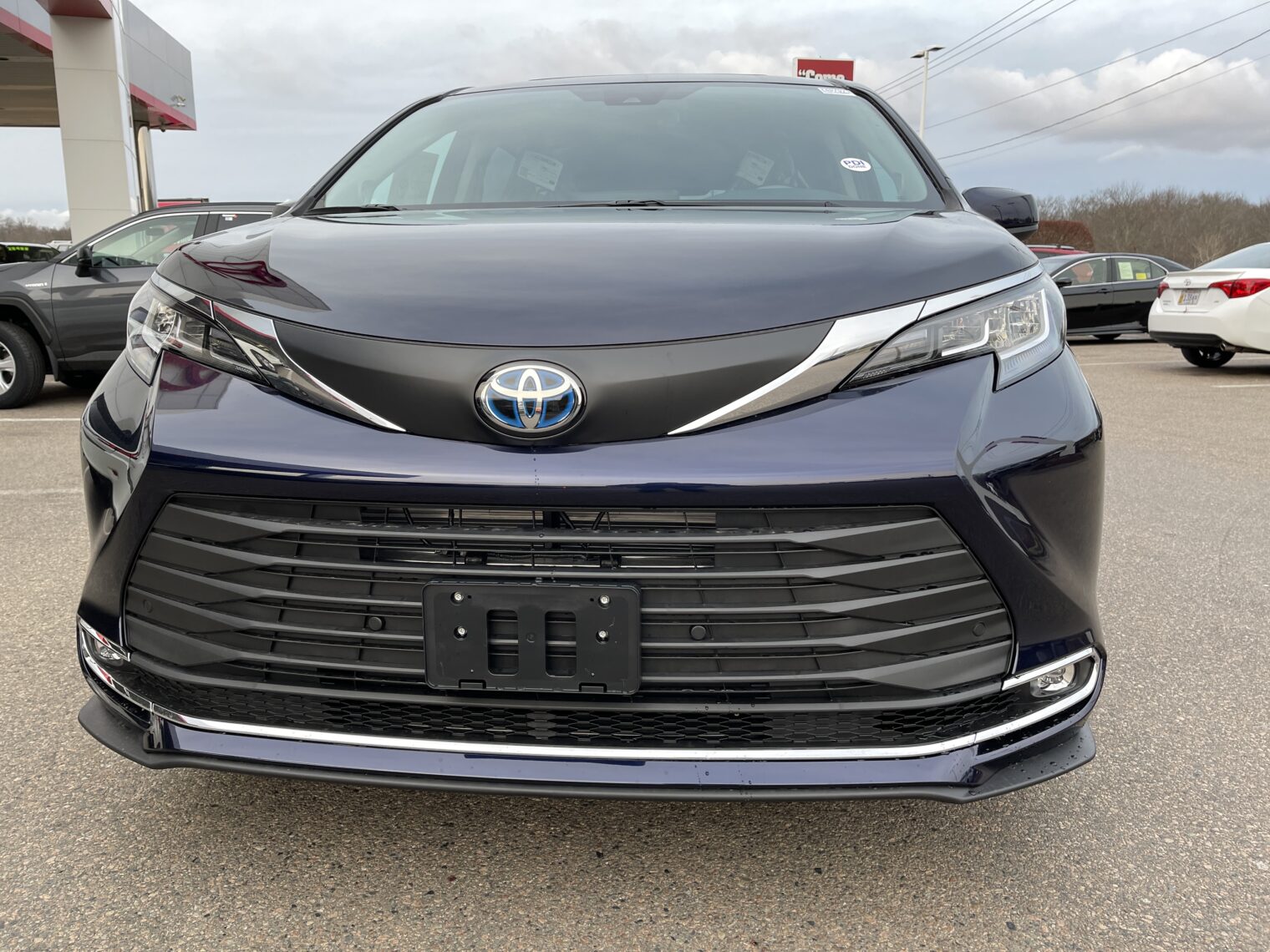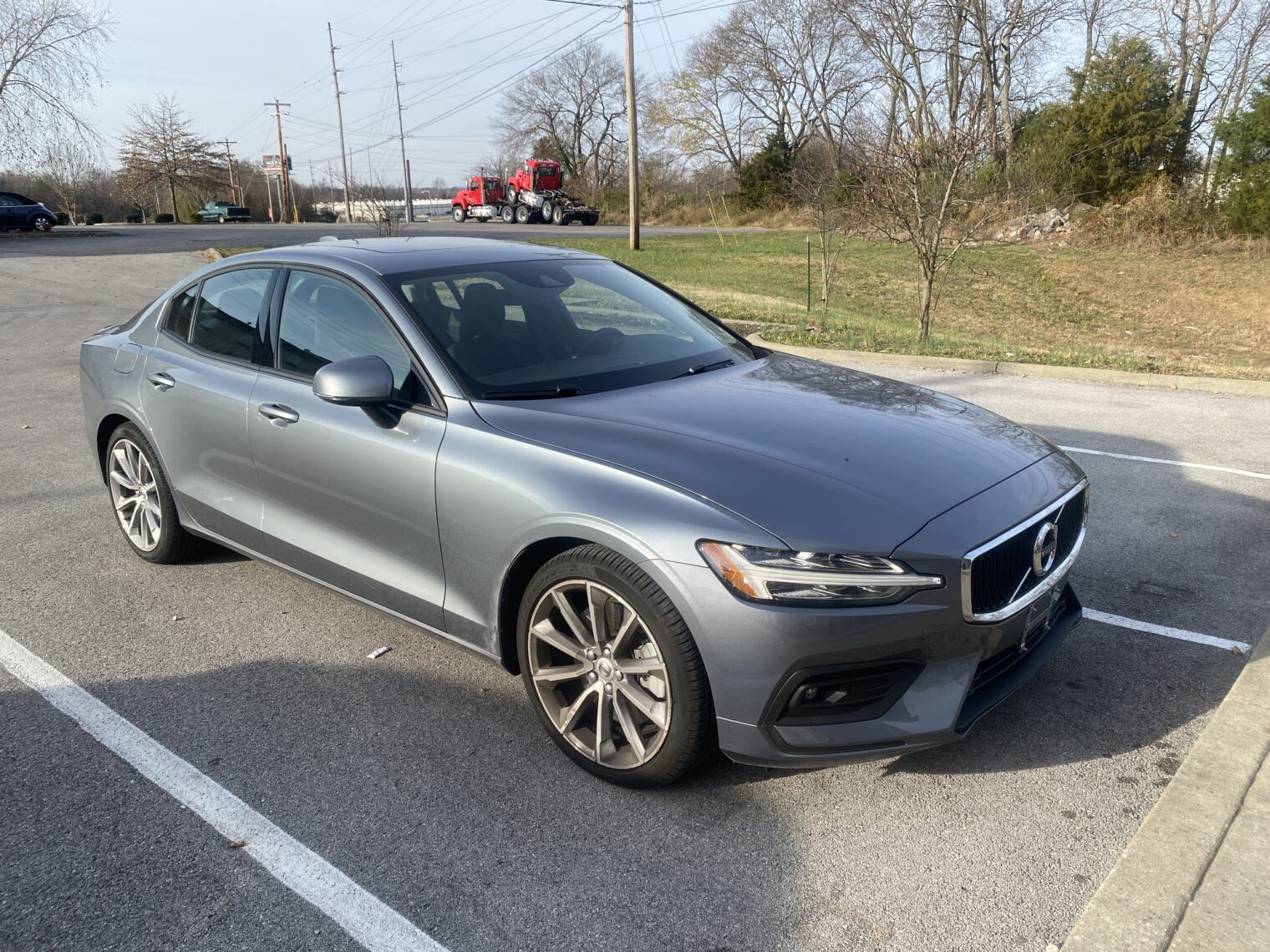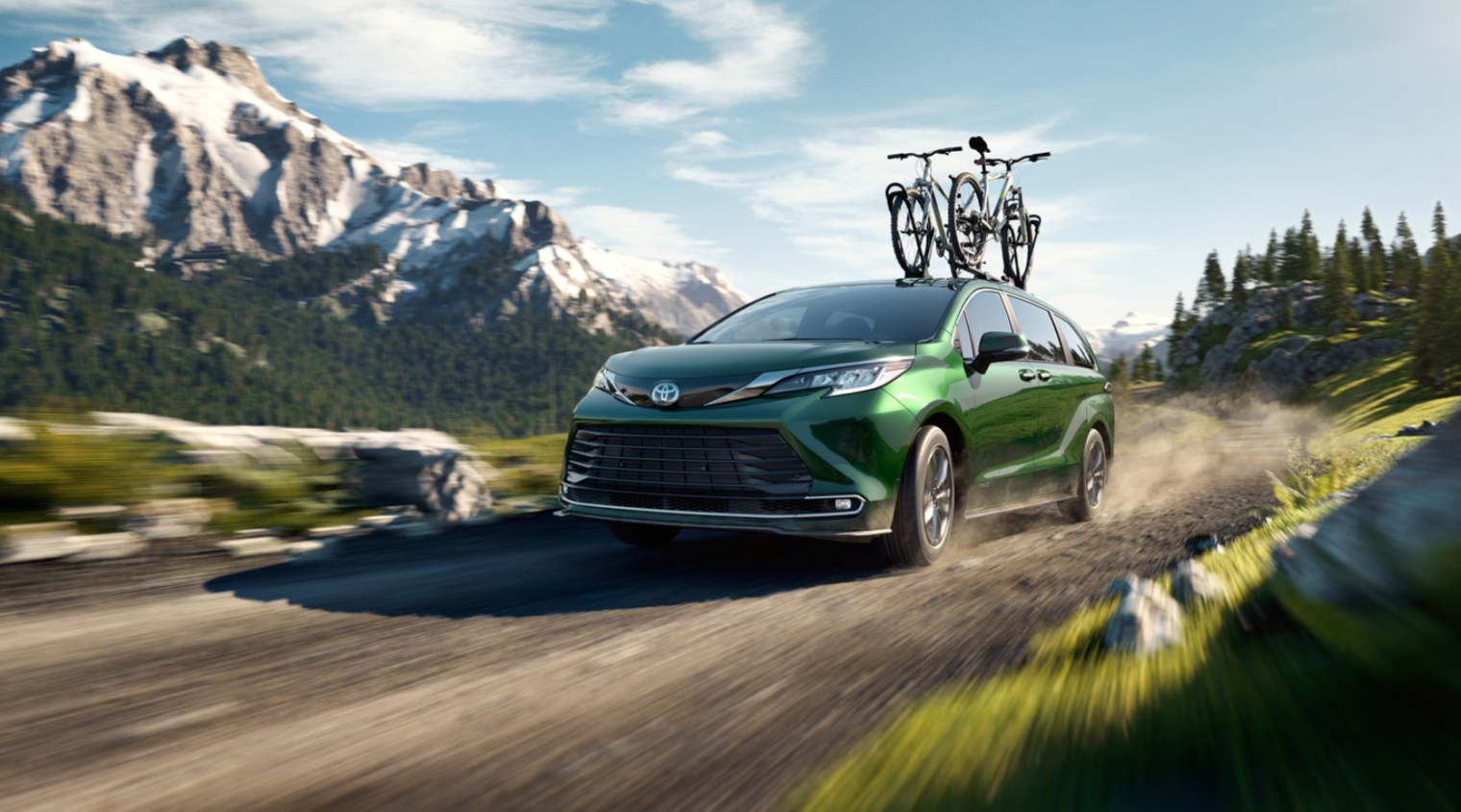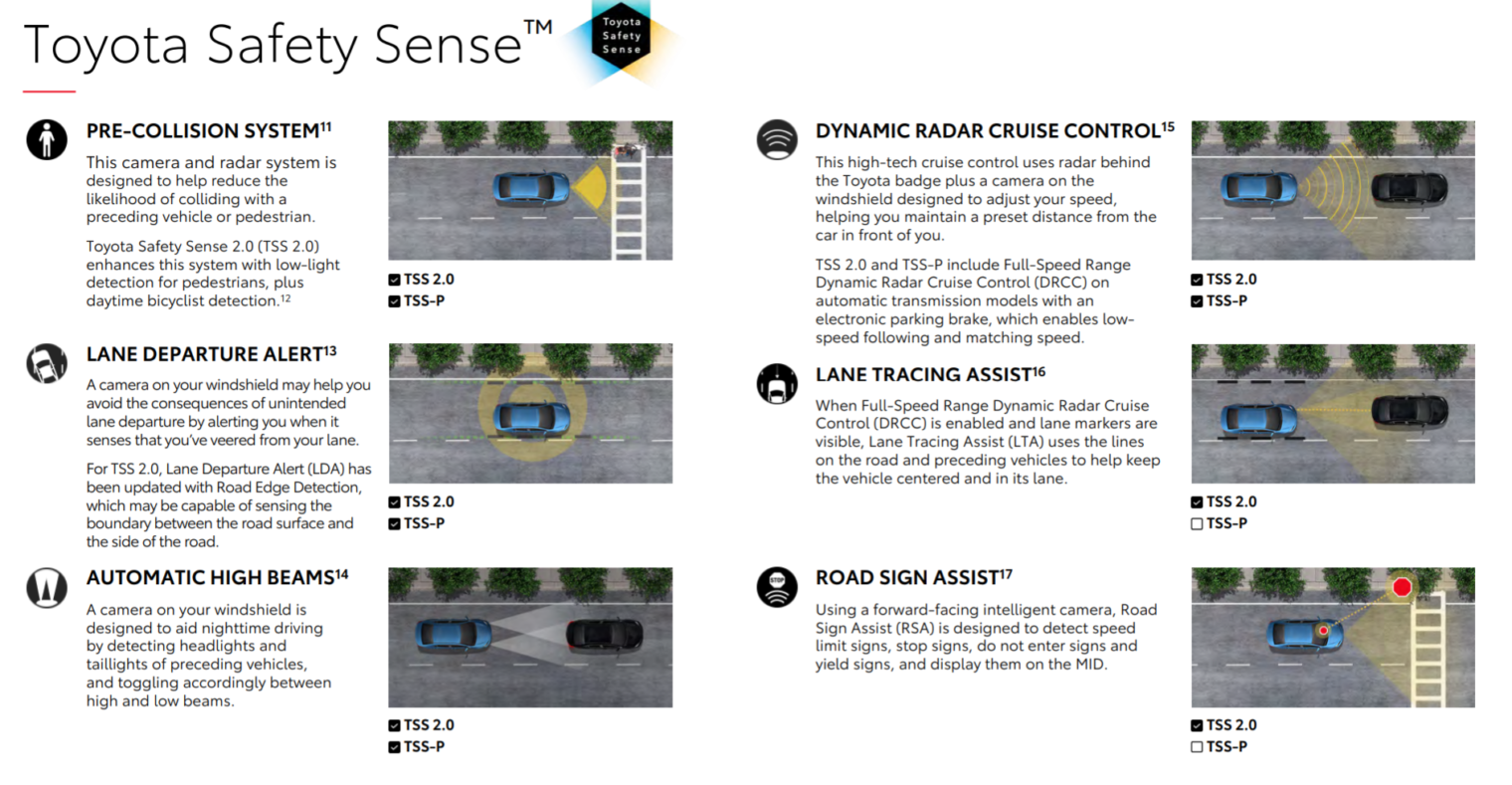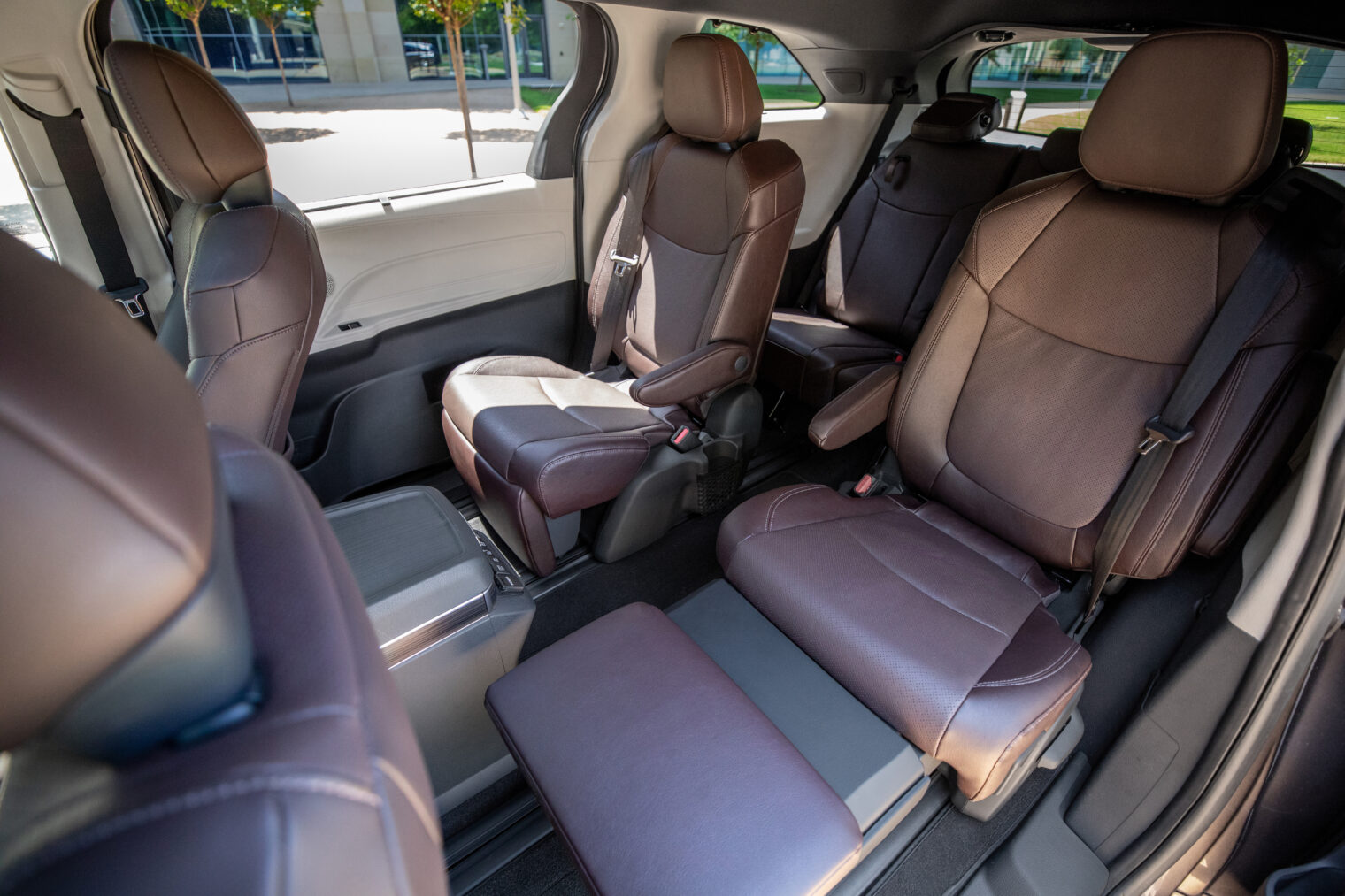For those who need the style and prestige that only driving a minivan can yield… the Toyota Sienna is all new for 2021 and contains much exciting technology (see Electric AWD implemented by Toyota for the 2021 Sienna minivan).
Our 2018 Honda Odyssey recently needed an oil change. While it was getting worked on, I test-drove a 2021 Honda Odyssey (apparently identical to our 2018 with the exception of the graphics on one switch) and walked across the driveway to the Toyota dealer and test-drove a 2021 Toyota Sienna XLE FWD.
The Sienna seems a little noisier inside at 50 mph. The handling and acceleration are less responsive. Stomping on the gas pedal does not result in anything dramatic happening whereas the Odyssey can be a 1980s-grade sports car if you need it to be. There is a wireless charger in the center of the dashboard in a place that would keep the phone out of everyone’s way. But why is it useful? You have to plug in the phone to get Apple CarPlay to work. At that point the phone is charging from the cable. The iPhone 12 Pro Max kept sliding off the precise spot where it needed to be to charge and the charge indicator would then flash.
One plus: the Sienna has a regular shifter for the transmission, instead of a confusing set of push buttons.
The “kick to open” sliding doors don’t work if you leave the keys in the car as we often do when we’re inside the airport fence, for example. So it ends up being an inconsistent interface (works when you have key in pocket; doesn’t work when keys are in car).
Nit: There are (plastic?) chrome buttons all around the touch screen that look cheap.
The other big problem with the Sienna XLE is that it seems to be far more expensive per month than the comparable Honda EX-L, at least when leased (which I think is the most reasonable way to look at the true cost of a car). The Sienna is a hybrid so it gets much better gas mileage, but it could still never save enough in fuel to overcome the extra lease cost ($150 or more per month).
Here’s the monster grille on the Sienna that I tested:
This would be great for a “form follows function” textbook example. The grille is mostly blocked off so as to reduce drag. There is a small hole in the middle for air to come in and cool the engine.
Our family decision: Change it up by replacing our leased white 2018 Honda Odyssey with a leased white 2021 Honda Odyssey.
Loosely related… what happens when MIT geniuses go shopping for cars? “Electric Cars Are Better for the Planet – and Often Your Budget, Too”:
New data published Thursday shows that despite the higher sticker price, electric cars may actually save drivers money in the long-run.
To reach this conclusion, a team at the Massachusetts Institute of Technology calculated both the carbon dioxide emissions and full lifetime cost — including purchase price, maintenance and fuel — for nearly every new car model on the market.
My comment:
How can the budget assertions of this article make any sense? A mid-sized Nissan Altima leases for $290/month (spreading the up front payment over 36 months). The Tesla web site shows the lease cost of the Tesla 3 at $525/month. The Tesla’s higher capital cost and high cost of bodywork means that the insurance for the Tesla will be much more expensive than for the conventional gas-powered mid-size car. Even if electricity were free, the Tesla would still be more expensive over the three-year lease. (Here in Massachusetts, the electricity for a Tesla actually costs MORE per mile than the gasoline for an Accord, Altima, Camry, or similar.) Maintenance costs? The conventional car will be under warranty for the entire lease period. It might need a couple of oil changes at $50/each. The Tesla will burn through tires (at least all of my friends’ Teslas have). I wonder if the research was done by people who had never shopped for a car.
Via facts, figures, and research, our best academics have proven that something that costs $525/month is cheaper than something that costs $290/month.
Update: Consumer Reports finally released their test results on the Sienna. Honda did better on the road test (85 vs. 79), “third seat comfort,” “interior fit and finish,” and “trunk/cargo area.” The Toyota was better for predicted reliability and fuel economy. In CR’s scoring system, the Sienna ended up higher overall, but for a lease customer the reliability is irrelevant (since the warranty extends for the full three years of the lease). The superior fuel economy is nice, but, as noted above, saving the planet won’t save you any money because the Sienna lease costs so much more every month.
Full post, including comments 


